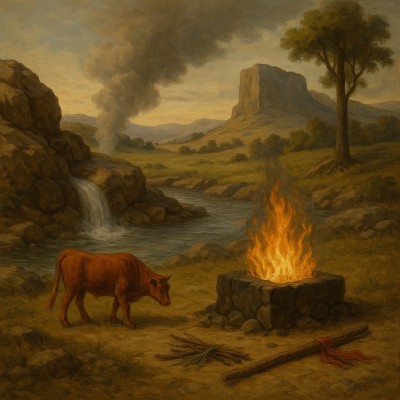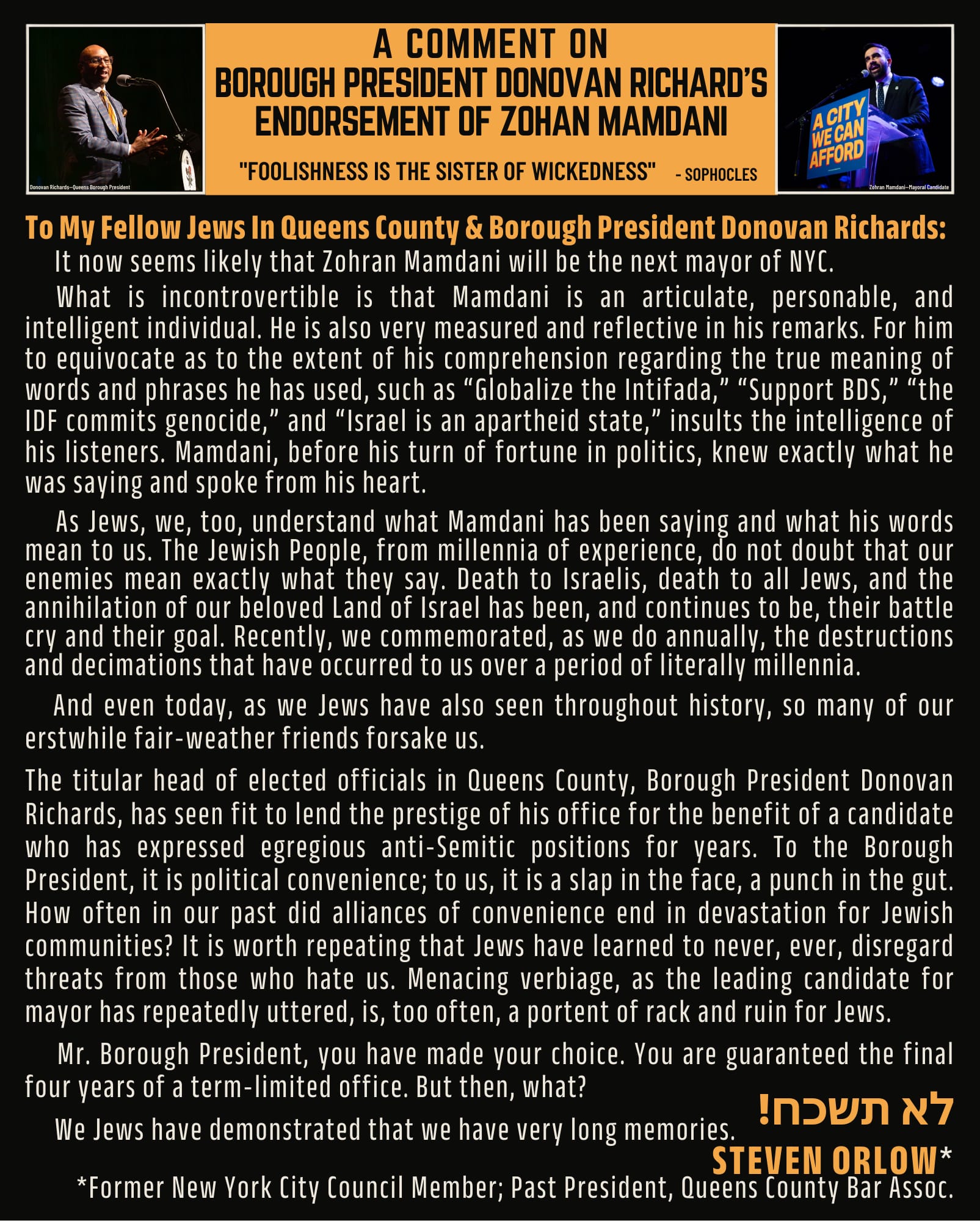
Parashat Chukat opens with the laws of the Red Cow, whose ashes are used in the ritual cleansing of one’s body after coming into contact with a human corpse. Chukat also tells us about the wandering of the Jews during the final year of their sojourn in the desert. Many important events happened during that year: Miriam died, and with her passing, the well that had accompanied them in her merit ceased to furnish the encampment with its waters. Aharon HaKohen also passed away during this year.
Continuing the journey to the Promised Land, the Jews approached populated areas. They had to decide whether to circumnavigate each country (as they did with the land of Edom) or to do battle with those who denied them passage, as they did with the Emorim (the Amorites). The parashah ends by telling us that the nation had arrived at the border of the Land of Israel and was encamped on the eastern bank of the Jordan River, opposite Jericho.
The second verse of the parashah tells us, "Zos chukas haTorah, This is the statute of the Torah." That is why it is called Chukat, from the word chok, meaning law.
Now, the entire universe is governed by laws. For instance, there are laws of nature established by the Creator. Many of them have already been observed and analyzed by natural scientists. We can describe them and take advantage of them for our benefit. We feel we have “mastered” these laws when scientists formulate equations describing them. However, their essence nonetheless remains a mystery to us. We may be able to explain how they operate, but we cannot fathom why they operate this way and not some other way.
For example, why is there a force of attraction (gravity) between two physical bodies? No matter how deeply we probe the laws of universal gravitation, we will not find an answer to the question. This fact was clearly formulated by Nobel Prize-winning German physicist Max Planck (1858-1947), who wrote that science cannot solve the ultimate mystery of nature because, in the last analysis, human beings themselves are part of the mystery they are trying to solve.
G-d also gave us laws on how Man must conduct his life. These were given to us by the Creator of the Universe and of Man. Here, too, there are many laws that we do not understand. G-d teaches us how we must behave in life in order to fulfill our destiny. These instructions are similar to the instructions a manufacturer inserts into the packaging of an electric appliance. They explain how to best use it and care for it. However, in some cases, we can propose a logical explanation for the Creator’s regulations. The Torah refers to these regulations as Mishpatim. For instance, the precept of honoring one’s parents, as well as the prohibition against theft and murder, are readily understood by the human intellect.
A different category of commandment includes acts of testimony, like the Passover holiday that commemorates the exodus from Egypt. But there are also laws that cannot be explained within the framework of human experience — although, of course, they are based on the secrets of Creation. The Torah calls this third category of commandments Chukim (statutes), a word that appears in this week’s parashah.
We carry out this category of commandments as simple orders from G-d. And, to a certain extent (but certainly not always!), we can grasp their mechanism through the consequences of our actions. For instance, Rashi quotes Rabbi Moshe HaDarshan, who points out the connection between the Red Cow and the sin of worshipping the Golden Calf. Let’s quickly review what happened when the people asked Aharon HaKohen to help them make a golden calf from a quantity of gold jewelry that they had collected. Once the calf stood before them, they worshipped it — even though it was merely an inanimate object — as if it were G-d.
One consequence was that, henceforth, every time one of them would become impure from contact with a corpse — an inanimate body — he would be obliged to carry out an incomprehensible commandment to cleanse himself. Why specifically a cow? The Sages explain: If a maidservant’s son dirties the home where his mother works, it is only natural to demand that she be the one to clean it up. Likewise, the Jews polluted themselves spiritually when they made the Golden Calf. Now, the mother — the cow — is summoned to cleanse them of impurity.
Why red? Red symbolizes sin, as it is said, "If your sins prove to be like crimson…" (Yeshayahu 1:18). Why must it be temimah, unblemished? After receiving the Torah but before worshipping the Golden Calf, the Jews were spiritually unblemished; the unblemished cow was to assist them in regaining that lost quality.
The essence of these commandments is hidden from us, but we can gain an insight into some aspects of their significance. For instance, the Red Cow ritual shows us that G-d's commandments are often beyond our full understanding, and yet they hold profound meaning, guiding us toward spiritual purity and connection to the Creator.
As the parashah moves forward, it continues to highlight the necessity of obedience to G-d's laws, even when their reasoning is not immediately clear. These Chukim serve as a reminder that while we may never fully understand G-d’s ways, our role is to follow His commandments, trusting in their deeper wisdom.
Rabbi Yitzchok Zilber, zt"l, dedicated his life to teaching Torah, and his impactful writings continue to inspire Jews worldwide. Copyright 2023 by The LaMaalot Foundation. Conversations on the Torah, by Rabbi Yitzchak Zilber is catalogued at The Library of Congress. All rights reserved. www.LaMaalot.org.
Parashat Chukat is sponsored by Petr Fakhlayev & Regina Tokova.
Rabbi Yitzchok Zilber, zt”l, was the founder of LaMaalot Foundation. He dedicated his life to teaching Torah, and his impactful writings continue to inspire Jews worldwide. Copyright 2023 by The LaMaalot Foundation. Conversations on the Torah, by Rabbi Yitzchak Zilber is catalogued at The Library of Congress. All rights reserved. www.LaMaalot.org.
Parashat Shelach is sponsored by Boruchay & Stella Katayev.
Parashat Chukat: The Red Cow & The Power Of Laws Beyond Understanding
Typography
- Smaller Small Medium Big Bigger
- Default Helvetica Segoe Georgia Times
- Reading Mode













